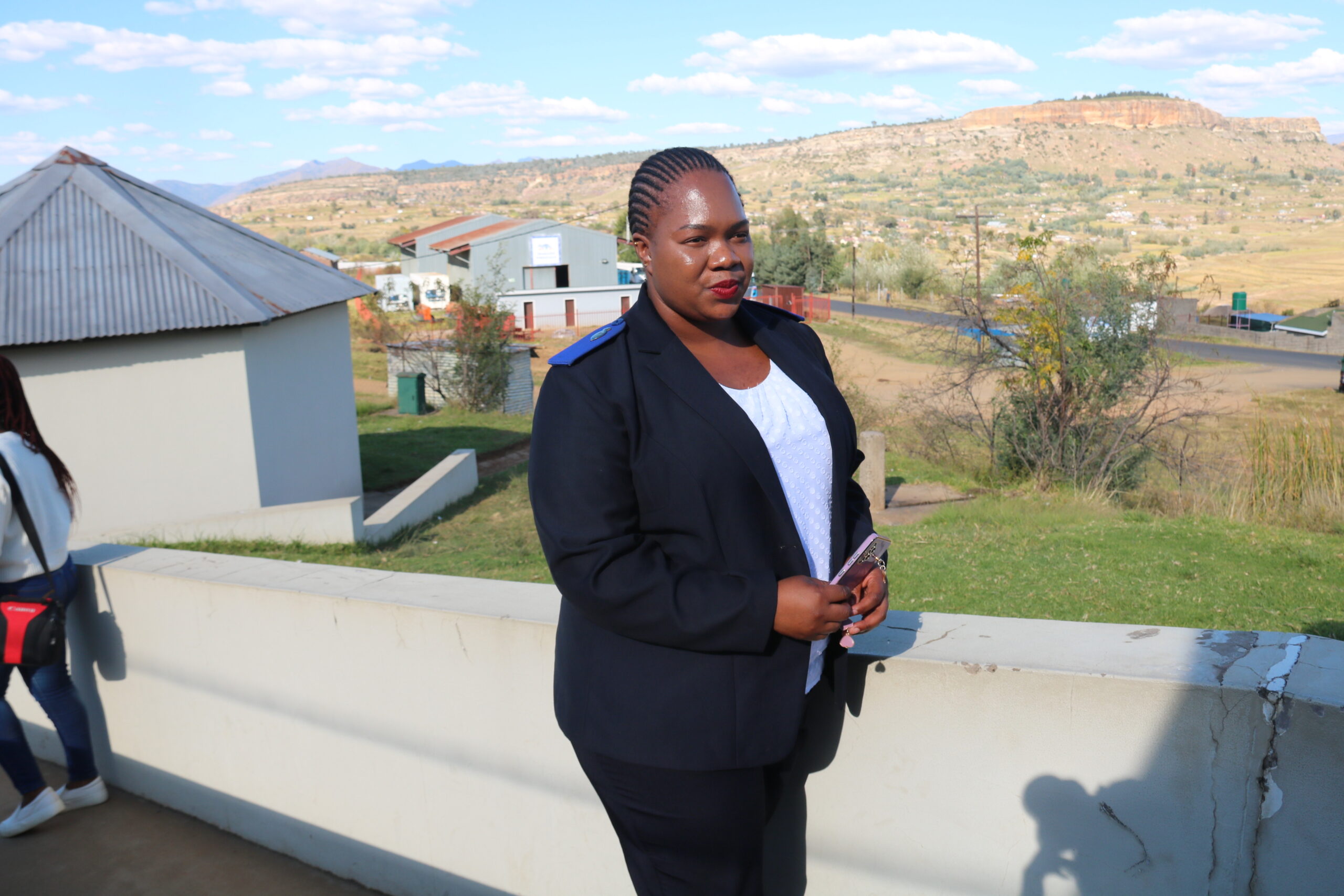Ntsoaki Motaung
People living in remote areas have to travel long distances to access healthcare services and this limits their access to life-saving interventions.
Pregnant women are disproportionately affected as this affects the quality of routine health care they receive during pregnancy.
This was disclosed by the community members and healthcare providers during visits by journalists to different health centers in the remotest areas of the Leribe and Berea districts.
The visits were supported by the United Nations Population Fund (UNFPA) – a UN agency aimed at improving reproductive and maternal health.
According to UNFPA, the Maternal Death Review Report of 2015 showed that the highest number of maternal deaths occurred in Maseru at Queen ‘Mamohato Memorial Hospital (QMMH) where 102 women lost their lives as a result of complications of delivery or inadequate care during pregnancy.
Additional alarming figures came from Leribe and Berea with 25 and 19 lives lost, respectively.
Based at Matlameng Health Centre, midwife nurse Thabo Makhakhe disclosed that some patients have to walk about four hours to the clinic.
Makhakhe mentioned that Matlameng clinic served about 30 villages and indicated Ha Koasa and Ha Sekhonyana were the farthest villages from the facility.
“Some of our patients have to walk long distances and are challenged by harsh weather conditions some days, like rainy days when the rivers overflow. This poses a great challenge as they have to cross rivers,†he said.
He said some women continued to give birth at home, not because they did not want to go to the clinic but because they struggled to get to the facility due to, among others, dilapidated roads.
“A lot of women understand the importance of attending ANC and it is during their ANC that they are taught about the importance of giving birth at the health facilities. But you will find that when it is time for them to go into labour, they struggle to get to the clinic, or they do not get transport to take them.
“They then decide maybe it is safer for them to give birth at home other than having to walk long distances, something that may put them at the risk of giving birth on the way before reaching the clinic,†he explained.
From the Lejone Health Center, ‘Madlamin Mokoma, village health workers’ coordinator said this year only, the clinic had already received about eight cases of women who gave birth at home and on the way to health facilities.
“They do attend ANC well until their last day. That is why we cannot say they do not want to give birth at the facility but problems are denying them access to the services when they give birth is of the distance some have to travel to the facility. They have to walk for long distances and that on its own is not easy for a heavily pregnant woman who is about to give birth,†Mokoma said.
She added, “I remember an incident where one of our pregnant women had to walk to the clinic. Before they could reach the clinic, the village health worker who was accompanying the pregnant woman realised that if this woman could take any few steps the baby will come out and that would put the life of the mother as well as the baby in danger. She called the clinic and one of the nurses took their personal car to go and get them. I am afraid if there was no car, something uncalled for would have happened.â€
Mokoma said what was needed was a readily available ambulance at the clinics which would assist in times when a pregnant woman came from a far village and could have access to transport.
She said Lejone Health Center served about 35 villages and most of the villagers have to walk about three to four hours to the clinic.
Census 2016 states that Lesotho has a high maternal mortality ratio of 618 deaths per 100,000 live births.
Most of the maternal deaths are caused by, among others, the long distances that women have to travel to access sexual and reproductive health services.
However, hemorrhage (uncontrolled bleeding), infection (including HIV), and hypertensive disorders (high blood pressure) are other causes.
Summary
- “They then decide maybe it is safer for them to give birth at home other than having to walk long distances, something that may put them at the risk of giving birth on the way before reaching the clinic,†he explained.
- That is why we cannot say they do not want to give birth at the facility but problems are denying them access to the services when they give birth is of the distance some have to travel to the facility.
- Before they could reach the clinic, the village health worker who was accompanying the pregnant woman realised that if this woman could take any few steps the baby will come out and that would put the life of the mother as well as the baby in danger.

Your Trusted Source for News and Insights in Lesotho!
At Newsday Media, we are passionate about delivering accurate, timely, and engaging news and multimedia content to our diverse audience. Founded with the vision of revolutionizing the media landscape in Lesotho, we have grown into a leading hybrid media company that blends traditional journalism with innovative digital platforms.






